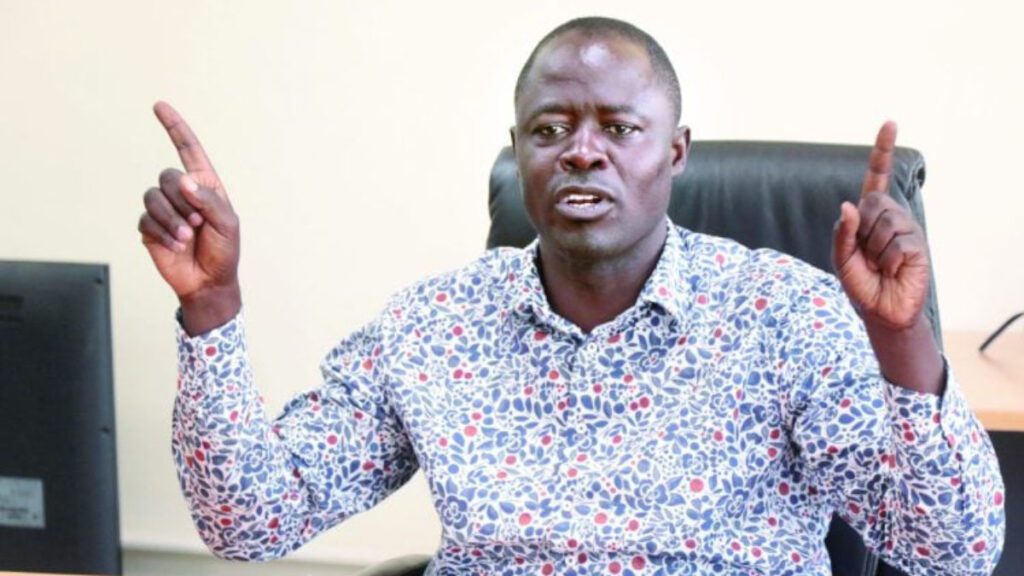Homa Bay Town Member of Parliament George Peter Kaluma has called on Kenyans to give President William Ruto the space to lead, saying the administration is grappling with a crippling fiscal legacy inherited from past regimes.
In a statement shared via his official X (formerly Twitter) account on Thursday, July 17, 2025, Kaluma attributed Kenya’s current economic strain to unsustainable debt accumulated by previous governments, much of which he claimed was misappropriated.
“The government is operating in a very tight fiscal space due to debts taken by the past regime, most of which they stole and can’t be accounted for,” Kaluma posted.
Unemployment Not Just a Kenyan Problem
Kaluma dismissed claims that the Ruto-led administration is singularly responsible for rising youth unemployment, citing World Bank and IMF projections estimating that by 2035, over 1.2 billion young people worldwide will be jobless.
“It is not a challenge for Kenya alone. Governments don’t employ, but create an environment in which the private sector will thrive to create job opportunities for the people,” he said.
He emphasized that job creation is primarily a function of private enterprise, not direct government hiring, adding that sustainable employment will require a focus on economic reforms and private sector growth.
Revenue vs Reality: “Ruto Is Keeping Kenya Afloat”
Kaluma broke down the country’s current fiscal pressures, stating that the Kenya Revenue Authority (KRA) collects approximately KSh2.5 trillion annually, which is quickly consumed by:
- Debt interest payments – KSh1.1 trillion
- Recurrent expenditure – KSh1.35 trillion
“By sheer ingenuity, Ruto has kept Kenya afloat, away from default with dire consequences,” he stated, warning that without such management, Kenya would face economic collapse.
On National Dialogue: “Facts vs Fury”
Kaluma, an active participant in X Spaces (online audio discussions), noted that while many of the forums begin with emotional outbursts, they often lack substance when confronted with fiscal realities.
“The debates, which always start with great fury, always fizzle in the face of facts and turn to empty political sloganeering,” he observed.
He encouraged broader youth participation in such national conversations, especially from underprivileged backgrounds, to ensure a more informed and inclusive public discourse.
Gen Z Protests Losing Shape?
Speaking on the recent Gen Z protest movement, Kaluma claimed that the original momentum has faded, particularly in counties like Homa Bay. According to him, the current agitation is now driven more by civil society actors and regional interests than grassroots youth movements.
“In Homa Bay, as in most regions of Kenya, we no longer have anything like the Gen Z movement,” Kaluma said. “The movement is now driven by the civil society and people from the Mt. Kenya region.”
On Media and Religious Leadership: “Too Hostile”
Kaluma criticised what he called unfair hostility toward the government from key institutions including the media, civil society, and even religious leaders.
He lamented that significant achievements—such as the recent Social Health Authority (SHA) reforms in the health sector—have gone largely unreported or underappreciated.
“The mainstream media reports nothing good from this administration, not even the revolution brought to the health sector by SHA!”
Final Plea: “The State Belongs to All of Us”
Concluding his remarks, Kaluma urged Kenyans to preserve national unity and stability even while expressing dissent. He reminded citizens that Kenya belongs to its people—not to any one administration.
“Not all challenges are resolved by running on the streets in Nairobi CBD,” he said. “Let’s keep the State as we exercise human rights and fundamental freedoms.”

